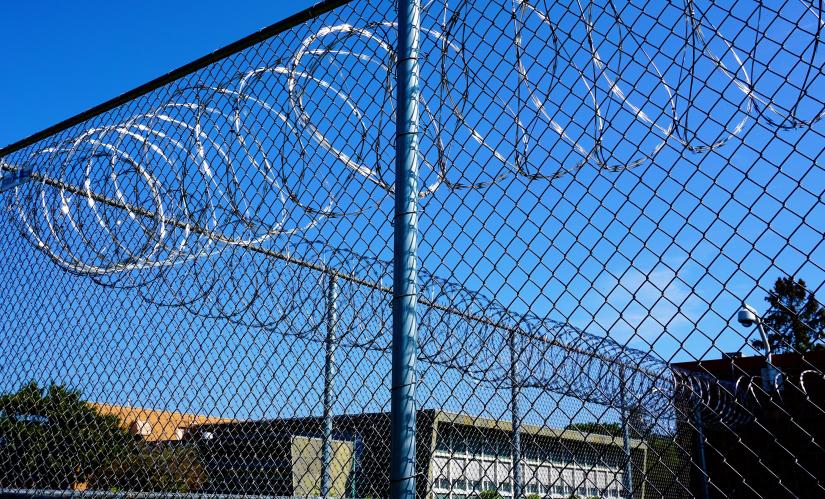Australia has been accused of “a clear breach” of its obligations under the United Nations anti-torture protocol.

Picture: Adobe Stock
This week, a United Nations torture prevention subcommittee delegation suspended its visit to Australia. The delegation arrived on October 16 and was due to end its visit on October 27, but suspended the visit prematurely on Sunday October 23.
In giving its reasons for the decision, the delegation claimed it had
been prevented from visiting several places where people are detained, experienced difficulties in carrying out a full visit at other locations, and was not given all the relevant information and documentation it had requested.
Justice Aisha Shujune Muhammad, the head of the four-member delegation, concluded there had been “a clear breach by Australia of its obligations under OPCAT”. The OPCAT is the UN’s Optional Protocol to the Convention against Torture and other Cruel, Inhuman or Degrading Treatment or Punishment.
Why suspension?
The Australian government signed the OPCAT anti-torture protocol in 2009 and ratified it in 2017, voluntarily agreeing to meet the obligations.
These include granting the subcommittee unfettered access to information such as the number of people deprived of their liberty in places of detention, and the treatment of those people and their conditions of detention. This also includes allowing unfettered access “to all places of detention and their installations and facilities”.
The subcommittee was reportedly granted access to some places of detention during its Australia visit last week, including in the Australian Capital Territory and the Northern Territory, and immigration detention centres.
However, the subcommittee was reportedly barred from entering some facilities in jurisdictions such as Queensland and New South Wales.
Justice Muhammad explained that
irrespective of whether [denial of access] happens in parts of the country, or in the country as a whole, we see that as an obstruction to our mandate.
Muhammad emphasised that suspending the subcommittee visit was not a decision taken lightly. In fact, such a decision has only been made three times in the past:
-
a visit to Azerbaijan was suspended, but then recommenced in April 2015, with a confidential report to the government
-
a visit to Ukraine was suspended and then recommenced in September 2016, with the report to the government being made public
-
and a visit to Rwanda was suspended in October 2017, to be ultimately terminated, without a report, in June 2018.
A collaborative approach
There are misconceptions about what the subcommittee actually does. It’s not an oversight or complaint handling body. It doesn’t carry out investigations or inspections. And it’s not in the business of naming and shaming governments or countries.
The opposite is true. The subcommittee’s work is grounded in co-operation, making confidential recommendations to governments on strengthening critical safeguards to mitigate the risk of torture and ill-treatment of detained people.
The optional anti-torture protocol is a forward-looking instrument, which focuses on building constructive relationships, and engaging in constructive dialogue, with governments and detention authorities.
This preventive mandate is to be distinguished from oversight and accountability mechanisms such as complaints adjudication, audits, regulation, monitoring, criminal proceedings, civil litigation and coronial inquests.
Can Australia benefit from a successful visit?
The short answer is yes. Every country can benefit from accommodating a visit by a subcommittee delegation, to have a fresh, objective, expert set of eyes on places of detention, and to learn from best practices internationally.
No country has a perfect record when it comes to preventing torture and ill-treatment in places of detention.
Australia is one of 91 countries that have voluntarily joined the anti-torture protocol. In doing so, it has affirmed a commitment to meet international human rights obligations to take proactive steps to prevent torture from happening in the first place.
So the emphasis here is on not just responding to torture and ill-treatment after the fact, when people have already gone through terrible pain and suffering, with potentially lifelong consequences.
Where to from here?
Australia was commended by the UN Working Group and many other countries at its 2021 appearance before the UN Human Rights Council Universal Periodic Review for ratifying the optional anti-torture protocol.
Under the protocol, Australia has committed to establishing a “national preventive mechanism” (NPM) – which can be constituted by multiple bodies and is the domestic counterpart to the UN subcommittee.
To date, the federal government has nominated its NPM body, as have the governments of the Australian Capital Territory, Northern Territory, South Australia, Tasmania and Western Australia. However, Victoria, New South Wales and Queensland are yet to do so.
The deadline for Australia to meet these commitments is in January 2023. It had been postponed for three years, and subsequently extended by one year.
In mid-November, Australia will appear before the UN Committee Against Torture, which monitors implementation of the UN anti-torture convention. The Australian NPM coordinator, the Commonwealth Ombudsman, has made a submission to the UN on the progress of implementation of the optional protocol.
Although the subcommittee has suspended its visit to Australia, there’s still an opportunity for Australian governments to work collaboratively to address any obstacles to the subcommittee effectively exercising its mandate, and being able to resume its visit.
On the other hand, the subcommittee may choose to terminate its visit if the issues it has identified aren’t resolved in a reasonable time frame. In that case, it may decide to make its observations public.![]()
Andreea Lachsz, PhD Candidate, University of Technology Sydney
This article is republished from The Conversation under a Creative Commons license. Read the original article.

